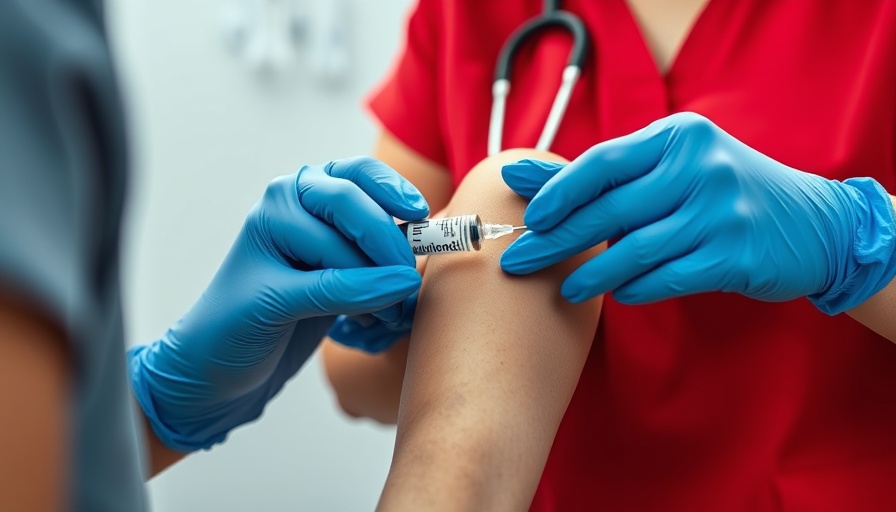
The Unfolding Crisis: Defunding mRNA Vaccine Research
As discussions regarding public health continue, a crucial turning point emerges with Secretary Robert F. Kennedy, Jr. making headlines for his decision to end federal funding for messenger RNA (mRNA) vaccine research. This measure has raised significant concerns among healthcare professionals regarding the future of vaccination programs in the United States.
Analyzing the Impact on Vaccine Trust
With growing skepticism towards vaccines, the question arises: will trust in vaccinations decline further, affecting the uptake of not only COVID-19 shots but also routine immunizations for diseases like measles, mumps, and rubella? This shift in public sentiment could lead to increased cases of preventable diseases, adding to the burden faced by healthcare systems already stretched thin.
Possible Health Consequences of Reduced Vaccinations
If fewer children and adults receive their recommended vaccines, we could witness a rise in disease outbreaks. Health experts warn that diseases that vaccination efforts had once nearly eradicated could resurface with alarming speed. The ramifications could be dire, not only in terms of public health but also economically as increased healthcare needs lead to higher costs.
Future Trends in Vaccination Recommendations
Changes in funding could result in altered vaccination guidelines from agencies like the Advisory Committee on Immunization Practices (ACIP). As the landscape of public health evolves, monitoring these changes will be vital for accurately assessing vaccine uptake, reporting deaths or serious injuries linked to vaccines, and ensuring public safety.
Political Influence Over Medical Science
The announcement comes amid fears that political pressures are overshadowing scientific guidance. As Michael T. Osterholm, Ph.D., a prominent epidemiologist, stated, “It scares me to think of what’s ahead.” The concern is that decisions could be politically driven rather than rooted in scientific evidence, challenging the integrity of public health responses.
Understanding mRNA Vaccine Successes
Recent studies have emphasized that mRNA vaccines have saved millions during the pandemic, proving effective against severe illness associated with COVID-19. As health departments move resources away from these proven technologies to explore new vaccine platforms, critical questions persist about the rationale and long-term impacts of this strategy.
Community Engagement and Transparency
As this pivotal shift in vaccine research unfolds, open conversations about the importance of vaccinations are essential. Public health campaigns focusing on transparent communication about vaccine efficacy and safety can help rebuild trust within communities. Engaging stories about personal experiences with vaccinations can also serve to inform and empower the public.
Looking Ahead: The Role of Personal Health Choices
In this changing health landscape, personal health awareness and responsibility become essential. With the added emphasis on nutrition, exercise, and lifestyle choices, individuals can take charge of their health. Integrating healthy eating habits, stress management techniques like mindfulness and meditation, along with regular physical activity, can enhance immune systems and prepare communities for health challenges ahead.
Conclusion: A Call to Action for Community Health
As the debate over vaccine funding rages on, it is crucial for health enthusiasts and community members to stay informed and advocate for robust vaccination programs that are grounded in scientific research. Your voice matters. Engage in conversations around vaccination, share your health journey, and promote healthy living alongside public health measures. Together, we can build a healthy future!
 Add Row
Add Row  Add
Add 




Write A Comment